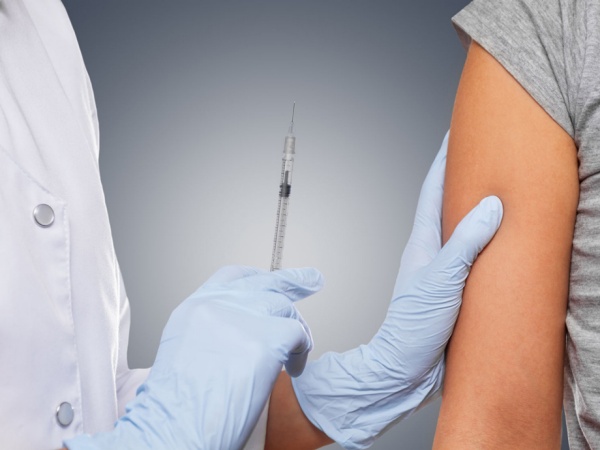
In 2015, following a measles outbreak that began in Disneyland and sickened more than 100 people, California enacted a law removing the “personal exemption” option for waiving school immunizations requirements. Since passage of SB 277, only children with medical exemptions signed by a physician can attend school without being vaccinated.
Vaccination rates improved in many areas, but the number of medical exemptions granted in the state has quadrupled. And not all of those exemptions were for issues considered by the U.S. Centers for Disease Control and Prevention to be medically valid.
Spike in Medical Exemptions Spark Concerns
“What we started to see when we looked into it is that there were some doctors – a very small group of doctors – who were profiting off of selling these medical exemptions [for immunizations],” says Kris Calvin, CEO of the American Academy of Pediatrics, California (AAPCA). “In some communities, that level got so high as to jeopardize the protection against these diseases for the children who were there.”
As the number of measles cases in the U.S. has soared this year to more than 1,000, another bill is making its way through the state legislature. SB 276 is sponsored by AAPCA, the California Medical Association and the nonprofit parent advocacy group Vaccinate California. It passed the Senate in April and is expected to be taken up by the Assembly this summer.
RELATED: What You Need to Know About Measles
If it passes and is signed into law by Gov. Gavin Newsom, parents whose children currently have medical exemptions from immunizations would be required to have their doctors file a standardized form listing the reason for the exemption with the state health department by Dec. 31, 2020. Those forms would be compiled into a database so that public health officials can track numbers of exemptions and geographic areas that might be vulnerable to certain diseases. The law would not, however, require the department to review and approve those exemptions.
New Oversight for Medical Exemptions
Beginning Jan. 1, 2021, all new medical exemptions would be submitted to the state health department, which would review some of them. But families with medically valid reasons – such as an allergy to a vaccine component or a weakened immune system due to chemotherapy or HIV – for seeking exemptions would notice few changes.
“It doesn’t change the conversation in the doctor’s office between the doctor and the family at all,” says Calvin. “The form would be standardized, but I don’t think a parent necessarily notices a difference between that and the doctor writing a letter.”
Calvin also doesn’t expect that the law would delay medically necessary exemptions, as it is modeled after a West Virginia law that has been working well. “The intent is to make it as easy as possible for the parent, because most of the parents of kids who need medical exemptions already have had a lot to deal with,” she says. “The intent is not to give them some new burden.”
Calvin also notes that these numbers are small. In 2014, just .2 percent of children in the state were granted medical exemptions from childhood immunizations. By 2018, that rate was still only .9 percent, according to the state health department. The majority of the impact of this law would be felt by parents seeking exemptions for reasons not considered valid by the CDC. “If there is an unethical doctor who is profiting from it, or if a family is not wanting to follow the rules in the state about who should be at school, our hope is that that path to a bogus medical exemption would go away,” Calvin says.
























